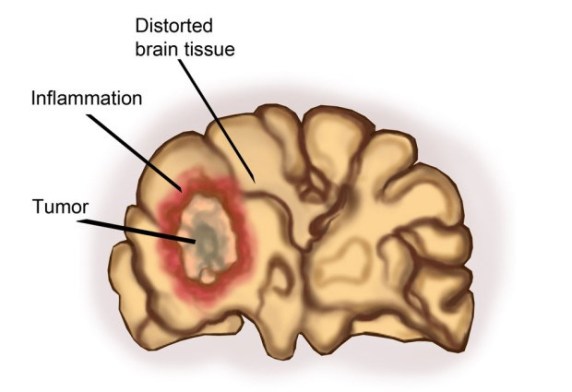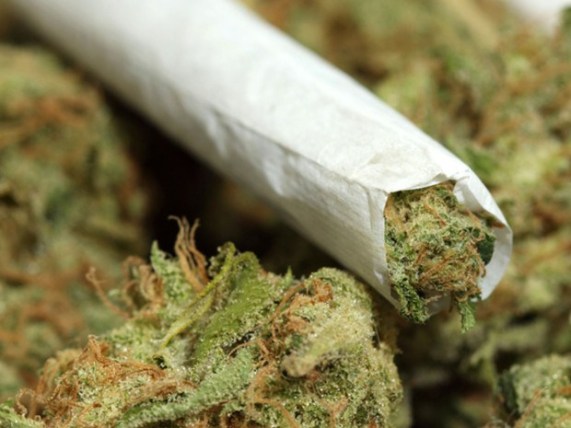It is easy to say that marijuana is close to being legalized by the United States Federal Government. As it stands, marijuana is classified as a Schedule I drug by the Drug Enforcement Administration (DEA). This means that marijuana is one of the most strictly regulated drugs, apparently because it is considered to have “no medicinal value” to the public.
But it has now emerged that the US federal government has admitted that marijuana may in fact serve as a useful treatment for brain tumors, one of the most dangerous type of cancers. Brain tumors can occur at any age, and the exact cause of brain tumors is not clear to researchers. The most common symptoms of brain tumors include headaches, numbness or tingling in the arms or legs, seizures, memory problems, mood and personality changes, balance and walking problems, nausea and vomiting, changes in speech, vision, or hearing.
This new stand by the Federal Government is said to be based on a major study published in November 2014 by researchers at the St. George’s University of London, that found that marijuana can be an effective drug to fight brain tumors. The National Institute on Drug Abuse has said in its new revised guidelines that “recent animal studies have shown that marijuana can kill certain cancer cells and reduce the size of others. Evidence from one animal study suggests that extracts from whole-plant marijuana can shrink one of the most serious types of brain tumors. Research in mice showed that these extracts, when used with radiation, increased the cancer-killing effects of the radiation”.
One of the lead researchers of the study, who made the discovery, explained that it is refreshing news that the US government is taking a new stand on marijuana.
Meanwhile, the study has triggered many well-respected personalities across the US to publicly speak their mind about marijuana. In February this year, the new US’s Surgeon General, Dr Vivek Murthy, said that he is optimistic that the US government will stick to its current position on marijuana so that more research can be carried out to fully explore the drug’s benefits, for the benefit of all people.
“We have to see what the science tells us about the efficacy of marijuana. We have some preliminary data that for certain medical conditions and symptoms, marijuana can be helpful. We have to use that data to drive policy-making,” he told CBS This Morning show in an interview.
The American Academy of Pediatrics has also adjusted its official position on marijuana and called for the government to drop its Schedule I status in order to facilitate more research on its effects.
A bill was also recently introduced in the Senate by some senators- Cory Booker (D-N.J.), Rand Paul (R-Ky.) and Kirsten Gillibrand (D.-N.Y.) that would reclassify marijuana as a Schedule II drug, to allow exploration of its medical benefits.
This means that the hard-line stand on marijuana is gradually becoming weakened. The government’s acknowledgement of the study augurs well for advocates for medical marijuana usage. The drug’s Schedule I classification has stifled scientific inquiry into the effects of marijuana (both good and bad) and has resulted in a catch-22: Marijuana is labeled Schedule I because it’s assumed to have no medicinal benefits, but that prevents people from figuring out if it has medical benefits, which then causes it to continue to be classified as a Schedule I drug….
Critics say that because it is labeled as Schedule I, scientists generally cannot acquire funding from anywhere to determine if it has any medicinal benefits to human beings.
Hopefully, with the advent of this revelation, and the initiative taken by some lawmakers to change the traditional stand on marijuana, companies and individuals who can afford to will be willing to sponsor new research into marijuana to determine its efficacy. The government too should make a concerted effort to also sanction in-depth research, to clear the air for the usage of the drug in a well-regulated manner for the benefit of the entire world. After all, if we can turn a “deadly poison” into a boon to the society, why should we not do it?
Source:





